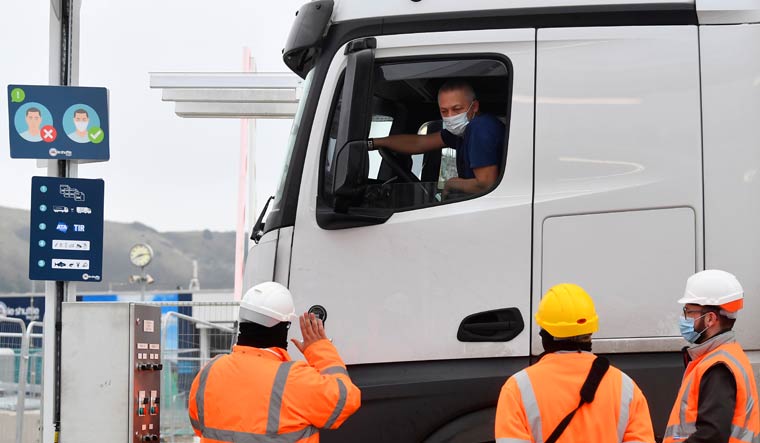As the world enters the fourth year since the United Kingdom voted to leave the European Union, millions of British and EU nationals alike now face a post-Brexit reality: From different queues at airports to requiring a new passport for their pets and applying for a special settlement scheme. 48 years since the UK joined the EU, it has now separated.
With a last-minute trade deal in place, the biggest fear over Brexit—that of a no-deal, borders-closed scenario—has been averted. Trade between the EU and UK will continue to attract no taxes, however, there will be additional checks in place between the two sides than what exists currently.
To check how the Brexit transition will affect you (or if it will), the UK government has set up a “Brexit checker” which will inform you of what steps you may need to take.
Broadly, here’s what will change from today:
Passport matters
UK citizens wanting to travel to the EU or the Schengen region can still do so without a visa. However, those planning to stay for longer than 90 days in a 180-day period, or to work or study, will need to apply for a visa. UK nationals may no longer take the EU queues at airports.
Of course, due to coronavirus restrictions, travellers from non-EU countries may not visit the region presently.
Travel to Bulgaria, Croatia, Cyprus and Romania will not count in the 180-day period.
Those whose passports are due to expire within six months, however, will have to apply for a new one before entering the EU.
From 2022, UK citizens will need to apply for an EU visa-waiver scheme before travelling there.
Pet passports will also no longer be valid from January 1, 2021. Those wanting to travel with their dogs or cats will need to meet certain conditions including getting an Animal Health Certificate (AHC) confirming the pet is microchipped and vaccinated against rabies.
Likewise, EU, EEA and Swiss citizens can continue travelling to the UK for holidays without a visa, provided they have a valid passport valid for the entirety of their planned stay.
From October 1, 2021, however, EU, EEA will be able to use their EU nationals ids provided they: Have settled or pre-settled status under the EU Settlement Scheme, have an EU Settlement Scheme family permit, have a frontier worker permit, are an S2 Healthcare Visitor, are a Swiss Service Provider. This will be the case until at least 31 December 2025.
EU citizens will largely face the same restrictions as non-EU nationals to immigrate to the UK, having to apply via the points-based system prioritising immigrants with necessary skillsets. EU citizens will also have to pay the standard visa fees: £348 for a student visa if applied from outside the UK (£475 if applied from within).
Trade and tariffs
While the estimated 1,200-page deal still needs to be passed by both the UK and EU parliaments, with traders still struggling to digest the new rules that were agreed just a week before, some changes are known in advance.
A free trade agreement sealed on Christmas Eve after months of tense negotiations ensures that Britain and the 27-nation EU can continue to buy and sell goods without tariffs or quotas. That should help protect the $894 billion in annual trade between the two sides, and the hundreds of thousands of jobs that rely on it.
But companies face sheaves of new costs and paperwork, including customs declarations and border checks.
The English Channel port of Dover and the Eurotunnel passenger and freight route braced for delays as the new measures were introduced, though the coronavirus pandemic and a holiday weekend meant cross-Channel traffic was light, with only a trickle of trucks arriving at French border posts in Calais as 2020 ended.
The vital supply route was snarled for days after France closed its border to UK truckers for 48 hours last week in response to a fast-spreading variant of the virus identified in England.
Northern Ireland will maintain an all-but-invisible border according to the BBC, and will largely follow EU rules—so trucks can enter it without facing inspections. Food products, however, will have to be inspected to ensure they comply with EU standards.
The Gibraltar question
Another last-minute deal, between the UK and Spain, sought to foreclose the risk of a hard border in the island of Gibraltar. With an in-principle agreement reached between both sides, the British overseas territory will be allowed to join the Schengen zone with Spain as its guarantor. For a four-year period, Gibraltar’s airport and port will become the EU’s external border, with the EU’s Frontex border agency responsible for checks.
However, since this is just an agreement, the EU commission will have to approve the proposals.
With inputs from PTI







